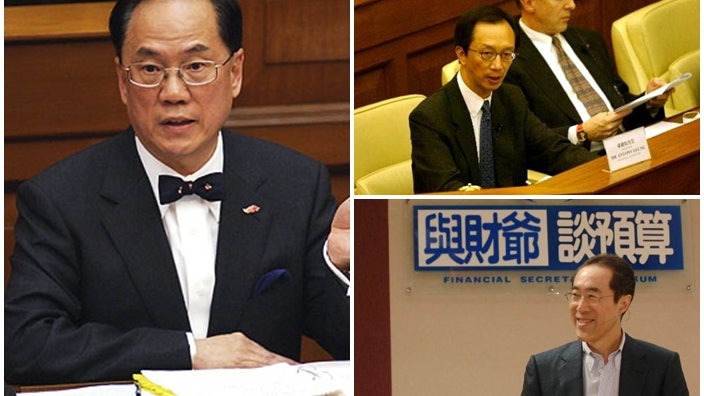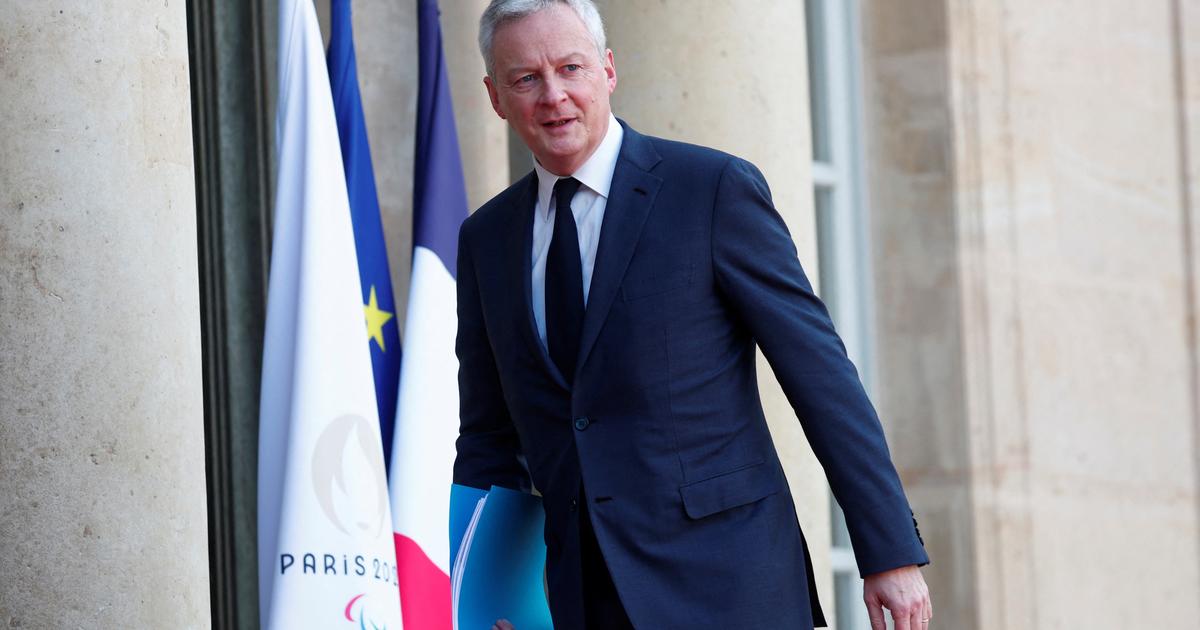Politics
Written by: Lin Jian
2020-02-27 07:00
Last updated: 2020-02-27 07:00The Financial Secretary, Chen Maobo, announced a new budget yesterday (26th). This year's deficit is expected to reach 37.8 billion yuan, and it is more likely to reach a record 137.9 billion yuan next year. In the previous article, the reporter reviewed the government ’s specific explanations and attitudes to the deficits under the previous “deficit budgets” and found that the government has been very cautious in dealing with the deficits. For each large-scale deficit, it will always propose ways to solve the deficit. This article will go a step further and explain how the policy changes brought about by previous budget deficits have affected today.
At the beginning of the reunification, due to poor economic conditions, the government faced multiple fiscal deficits. The then rich man often made important policy changes in budgets, and some of the effects have continued to this day. For example, the deficit budget of 1999 prompted the government to privatize public services and inoculated the two mountains of today's MTR and Link Exhibition.
This time Chen Maobo indicated that there are tens of billions of fiscal deficits, and even expected fiscal deficits in the next few years, but did not propose more specific policy changes. Sources revealed that the introduction of new taxes is currently on the government's research agenda.
▼ "Budget 2020" measures ▼
+17
+16
+15
Further reading: Fiscal deficits reappear after 15 years
1999: Promote privatization of public institutions to indirectly raise MTR and lead exhibitions
In the early days of the reunification, Hong Kong was hit by the Asian financial turmoil in 1997 and the economy suffered a setback. In 1999, then Treasurer Tsang Yam-kuen announced the second budget after the reunification, stating that a deficit of 24.5 billion yuan would be expected in that year. At that time, Tsang Yam-kuen proposed the most important policy to fill the fiscal deficit, which was the privatization of public institutions. Tsang Yam-kuen stated that the government ’s 100% equity interest in the MTR Corporation (today MTR Corporation) is “no longer applicable”, and proposed to privatize part of the equity of the MTR Corporation through public offerings. The government retains the largest shareholder status. The company went public in 2000, operates through rail + real estate, and manages "improving efficiency" with an independent board of directors.
However, because the government is accused of being unable to control the MTR, the latter has repeatedly been exposed to scandals in recent years, such as high-speed rail delays, Shazhong line, etc., from time to time serious failures or even derailment accidents, the quality of service has been criticized by the outside world. It can be said that 21 years ago, the government indirectly raised MTR as a "monster" in order to fill its fortunes. Therefore, in recent years, there have been voices among the people. Since the treasury is full, the government should repurchase MTR shares.
Since then, the "private privatization of public services" has also become a policy trend of the government, prompting the government to spin off part of the Housing Authority's retail and parking lot businesses, which led to the subsequent listing of LinkedIn (now LinkedIn). In the future, the decisions concerning the management of shopping malls and parking lots have been criticized, and they have been criticized for placing more emphasis on commercial interests than people's livelihood needs. This is believed to be familiar to the general public.
Birth of "new system" civil servants
Another important influence is to make the government reform the civil service. Tsang Yam-kuen pointed out at the time that he would reformulate the employment policy for civil servants and review the civil servants' pension system. Eventually, the government issued the "Civil Service Reform Consultation Document" in March of the same year. In June 2000, a new civil service recruitment system was implemented, which is now a "new system" of civil servants as understood by the public.
In simple terms, the old civil servants have much better treatment. For example, after retirement they have long-term pensions and free public medical care. The new system owes them and they are converted to a contribution fund. Most of the new civil servants have to accept a period of trial or contract terms. The designated observation period can only be employed on long-term employment terms after passing.
2000: One-off funding for social welfare
Tsang Yam-kuen's budget released in 2000 pointed out that a deficit of 1.6 billion yuan is expected in the year. Although the government eventually revised a surplus of 10 billion in the year, the government continues to reduce expenditures, such as continuing civil service reforms, proposing voluntary retirement plans, and suspending the recruitment of civil servants. Wait.
One of the most far-reaching changes is the reform of the entire government funding system. At the time, Tsang Yam-kuen accepted the proposal to reform the funding system in response to financial problems, and encouraged funding agencies to implement a "resource enhancement plan" to increase the efficiency of resource use. For the social welfare sector, the government has implemented a "block grant" (one-off grant) system in 2001 to replace the actual reimbursement system (the main promoter of the policy is the then Director of Social Welfare and the current Chief Executive Lin Zheng Yue'e).
The original intent of a one-off grant is to allow non-governmental organizations to autonomously and flexibly allocate resources to meet service needs and increase the benefits of resource use. However, the actual implementation has led to the lack of supervision and "fatness" in the use of resources. And other phenomena. Front-line employees have contracted and time-limited work, lack of bargaining power, and employees are not recognized for their seniority. They must also "run and report" like commercial organizations, pay more attention to digital results than actual service quality, and continue to lose talent in the long run.
During the tenures of Tsang Yinquan, Liang Jinsong, and Tang Yingnian, they all had deficits. (Information Office / Information Photo)
2002: Liang Jinsong opens to civil servants
After Liang Jinsong took the post of rich man, the government's finances had a bigger gap. In the 2002 budget, he announced that the fiscal deficit for the year is expected to be 65.6 billion yuan. Undertaking the reform of the civil servant system in the era of Tsang Yam-kuen, Liang Jinsong went further to pay for civil servants. He said at the time that when the government compiles its medium-term expenditure forecasts, civil servants may be required to reduce their pay by 4.75%. The pay reduction will be implemented in phases starting from that year.
It is also worth mentioning that Liang Jinsong quoted the lyrics of "Under the Lion Rock" in the closing speech of the year: "Release the contradictory ideals in each other's minds and go together to chase with the people of the world, follow the fearlessness and fearlessness, and join the cape and the rugged terrain together. I say that everyone has worked hard to write the famous immortal famous sentence. "Hong Kong people gritted their teeth to overcome the difficulties and became the" famous sentence "in Hong Kong's political circles in the future. Of course, this song has now been added with a strong organizational color, that is what comes next.
2003: Liang Jinsong announces tax increase and indirectly pulls himself out of office
In 2003, Liang Jinsong announced that this year's deficit is expected to reach 70 billion yuan. In terms of civil service treatment, the civil service establishment was reduced by 10% from that time to 2006/07, to about 160,000 positions, and from April of that year, From the 1st, it will suspend the recruitment of civil servants and launch the second round of voluntary retirement plans.
In the same year, Liang Jinsong proposed to increase a variety of taxes including profits tax, salaries tax, automobile first registration tax, departure tax, and gaming tax. Among them, a "soccer betting tax" was added to the betting tax, which was the legalization of subsequent football betting; Liang Jinsong himself bought a Lexus RV on January 18 before announcing an increase in the first registration tax on the car, but did not declare a benefit. Suspected of stealing, the scandal eventually led him to step down.
In the 1999 Budget, Mr Tsang proposed the listing of the MTR (today MTR). However, MTR management issues are still unresolved. (Profile picture)
2004: Tang Yingnian raises sales tax and eventually aborts
In 2004, Tang Yingnian issued a budget, which is expected to have a fiscal deficit of 49 billion yuan in the year. Among them, he mentioned the narrow tax base in Hong Kong, and also pointed out that governments around the world have made up for income from the consumption tax levy, and proposed to study the "goods and services tax" (that is, sales tax). If successfully implemented, it will be a very significant policy change.
The government introduced a tax reform document in 2006 and proposed a 5% goods and services tax. However, because this involves the introduction of new taxes, the impact is wide, and the general public is very dissatisfied with the phenomenon of disparity between the rich and the poor. They believe that the sales tax is "robbing the poor and helping the rich". In the end, it was suggested that abortion would end with opposition from all walks of life.
2009: Zeng Junhua sent sugar as the main ingredient
Zeng Junhua issued a budget in 2009, saying that there will be a deficit of 4.9 billion yuan in the year (finally revised to a surplus of 1.5 billion yuan). At that time, after the financial tsunami, and the government fiscal reserves accumulated to 488 billion yuan after years of surplus, Zeng Junhua did not propose important policies on open source and expenditure reduction, but continued to provide one-time sugar distribution measures such as waiver of rates, government Property and land rent concessions, freezing of government fees, salaries tax concessions, and personal income taxation.
Chen Maobo announced a new budget, announcing that the whole people would send 10,000 yuan. (Photo by Zhang Haowei)
2020: Chen Maobo expects new revelation of "increased tax" of 100 billion fiscal deficits?
Chen Maobo announced that there will be a deficit of 37.4 billion yuan this year, and a deficit of 137.9 billion yuan is expected next year. However, he still announced that he would spend 71.1 billion yuan to send money. He also said that 120 billion yuan of the next year ’s estimated deficit will be distributed with money and other one-off Related to the rescue measures. In the Budget and subsequent press conferences, Chen Maobo did not mention the specific policy of increasing revenue and reducing expenditures, and stated that it is "too early" to talk about increasing taxes.
The source pointed out that the introduction of new taxes is currently on the government's research agenda, and the scope of research is more than one direction. Land departure tax and sales tax are also included, emphasizing that there is no specific direction.
[Budget 2020] Police Force Allowances Increase 9 Times to 2.55 Billion Yuan
[Budget 2020] Fixed-rate mortgage loans refract building policies? Zhuang Tailiang: Don't care about the city
[Budget 2020] It is unreasonable to send money to new immigrants without a share.
2020 Budget Budget Chen Maobo sends Qian Zeng Yinquan Zeng Junhua Liang Jinsong Tang Yingnian MTR Link Exhibition 01 policy analysis



/cloudfront-eu-central-1.images.arcpublishing.com/prisa/JFV33VNFE4U24DXYYW2DGO3HOY.jpg)
/cloudfront-eu-central-1.images.arcpublishing.com/prisa/VOQEHFVTC5OSYTU5YOO5SYQ5DU.jpg)

/cloudfront-eu-central-1.images.arcpublishing.com/prisa/BSW76ADTMZBGXEN5B5THLU2R7M.jpg)


